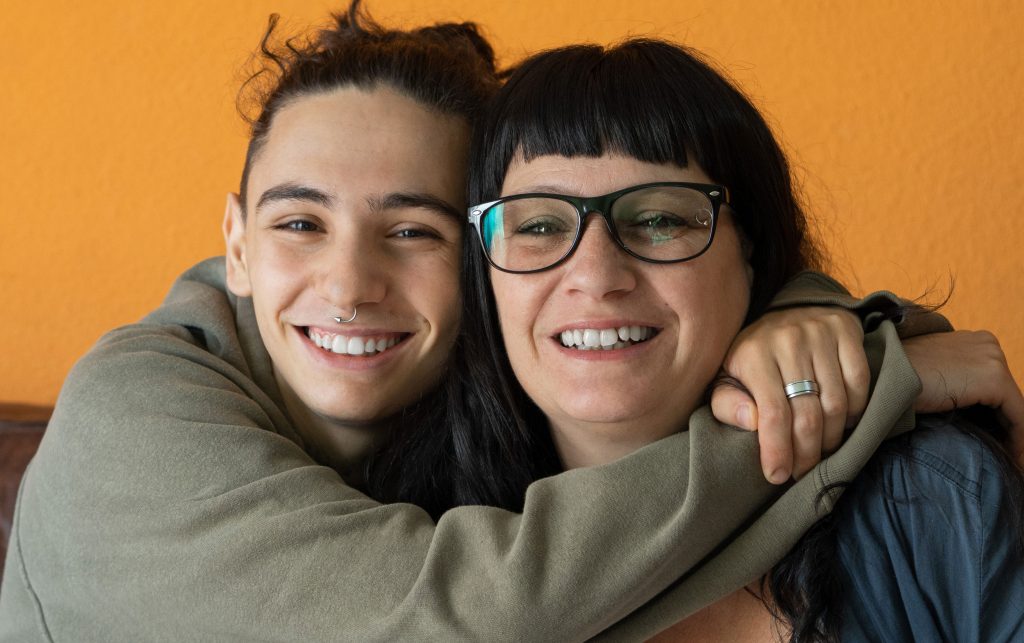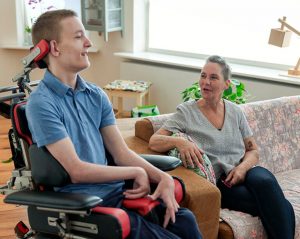If your child is turning 18 this practical checklist will guide you through their next steps into adulthood.
Post-school
As your child approaches 18, the school journey will soon be finishing. Begin to plan a transition to post-school life and what this looks like. Post-school options are as varied as they are exciting.
They include:
- TAFE
- University
- Supported group activities
- Running a microenterprise
- Volunteering
- Employment
So how do you determine what option (or options) will work best for your child?
Start by thinking about their skills, strengths and interests. Remember what they can do will change over time and can be a combination of options.
Discuss with your child, talk to their school, ask therapists and service providers for their input and ideas.
Useful links
Planning for post-secondary education
Everybody can work
Govolunteer
Microenterprises
Driver’s licence
Learning to drive is another milestone on your child’s path to independence.
Once your child has their learner permit, contact VicRoads for information on learning to drive with
a disability.
VicRoads may require your child to complete a medical or occupational therapy assessment.
Support is available to help your child obtain a learner permit with online practice tests and NDIS funding that can support them in passing their driving test.
Useful links
Getting and keeping your licence
Medical assessment
Occupational therapy (OT) assessment
Proof Of Age Card
Now your child is an adult, they will need photo identification. If they don’t have a passport or learner permit, they may want to consider obtaining a Proof of Age Card.
You can apply for a Proof Of Age Card online or at your local post office.
Useful link
NDIS
If your child is an NDIS participant you need to think through what support will be needed once they finish school.
Obtain reports from their therapist for evidence of support required and talk to your Local Area Coordinator or Support Coordinator (if you have one).
Talk to your child about whether or not they want you to continue to help them manage their NDIS Plan.
If they want your assistance, be sure to fill out a nominee form before they turn 18, so that you can continue to act on their behalf.
There are two types of NDIS nominees:
- A correspondence nominee
- A plan nominee
To determine which is best suited to your child’s needs, contact your Local Area Coordinator.
Begin this process early, that way you will avoid losing access to any of your child’s online MyGov services.
Your child will also need to sign the form to provide consent for your new role as nominee.
Useful link
Guardians and nominees explained
Centrelink and Medicare
Your child will need their own MyGov account. If your child wants you to continue to act on their behalf, Centrelink requires that you become a nominee before your child turns 18.
You can contact Centrelink directly for more information.
Your child will need their own Medicare card. Medicare will also need you to complete an authorisation form if your child consents for you to access their medical records once they reach adulthood.
Useful links
Centrelink online account help – Add a nominee
Medicare forms
Healthcare
The transition from paediatric to adult healthcare is different for every service provider.
Some paediatricians will continue to work with people up until the age of 21, while others have a cut-off at 18. This will need to be discussed with your child’s doctor and you will need to work with them to develop a transition plan.
Be sure to gain consent from your child before attending any appointments or seeking out medical records on their behalf.
Your child may want to choose a Medical Support Person to assist them with medical decision-making.
Ambulance Victoria membership
Family membership covers children under the age of 17 and full-time students up until 25.
If your child has turned 17 and is no longer studying, they need a separate membership. If your child has a Health Care Card they can get the concession rate.
Family private health insurance can also change when your child turns 18 or is no longer studying full-time. Check with your provider.
Useful links
Transition to adult care
Your supported medical decisions
Voting
In Australia, voting is compulsory for everyone aged 18 and over. So if your child has not already done so, they will need to enrol to vote.
The Australian Electoral Commission (AEC) offers a range of services to support people with disabilities to vote, including postal votes and early in-person voting.
If your child is incapable of voting, you must complete an exemption form.
Useful links
Enrol to vote
Information for people with disability mobility restrictions
Objection claim that an elector should not be enrolled (PDF)
Decision making
Now that your child is 18, they are legally considered an adult.
To support this transition, it’s helpful to talk to them about what this means, particularly their finances, healthcare, and general care needs.
There are options like Supported Decision Making, Medical Support Person and Supportive Attorney.
There are also options like Supportive Guardians and Administrators to assist the person with disability to make decisions.
Guardianship is where another person makes decisions on behalf of the person with disability. This is the last resort and only made when a less restrictive option is not possible.
Useful links
Supported Decision Making in Victoria (PDF)
Side by Side: A guide for people wanting support to make decisions (PDF)
Your supported medical decisions
Your supported personal and financial decisions
Supportive guardians and administrators
Guardianship and administration
Future planning
Now that adulthood has arrived, it’s time to look to your child’s future and your own.
Think about what support your child will need when you are no longer able to care for them. Setting up supportive decision-makers and making a will are an important part of future planning.






